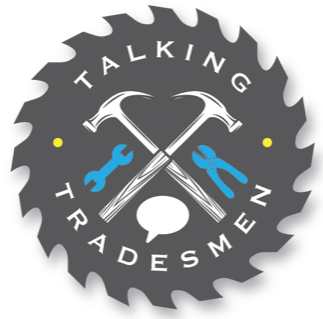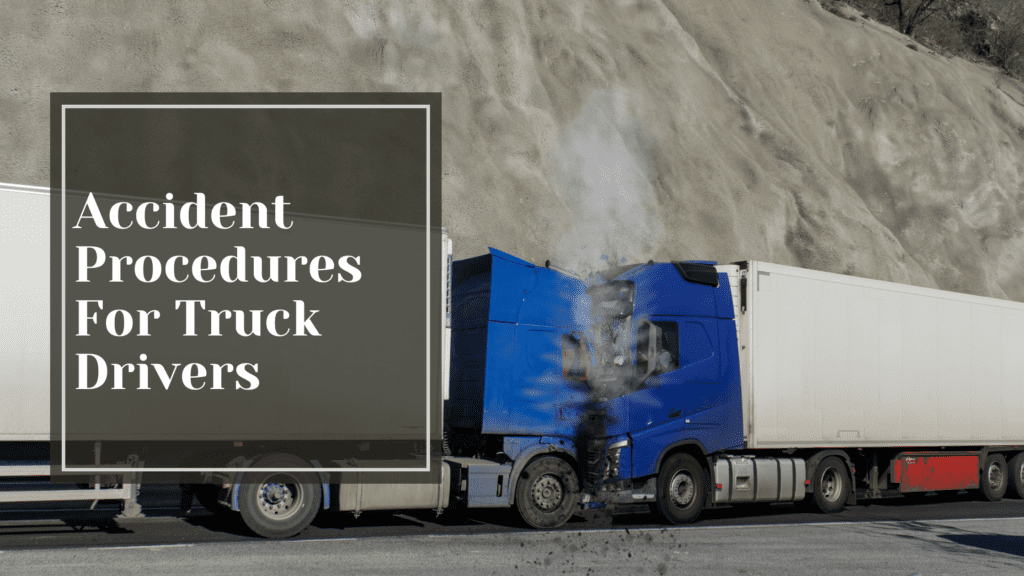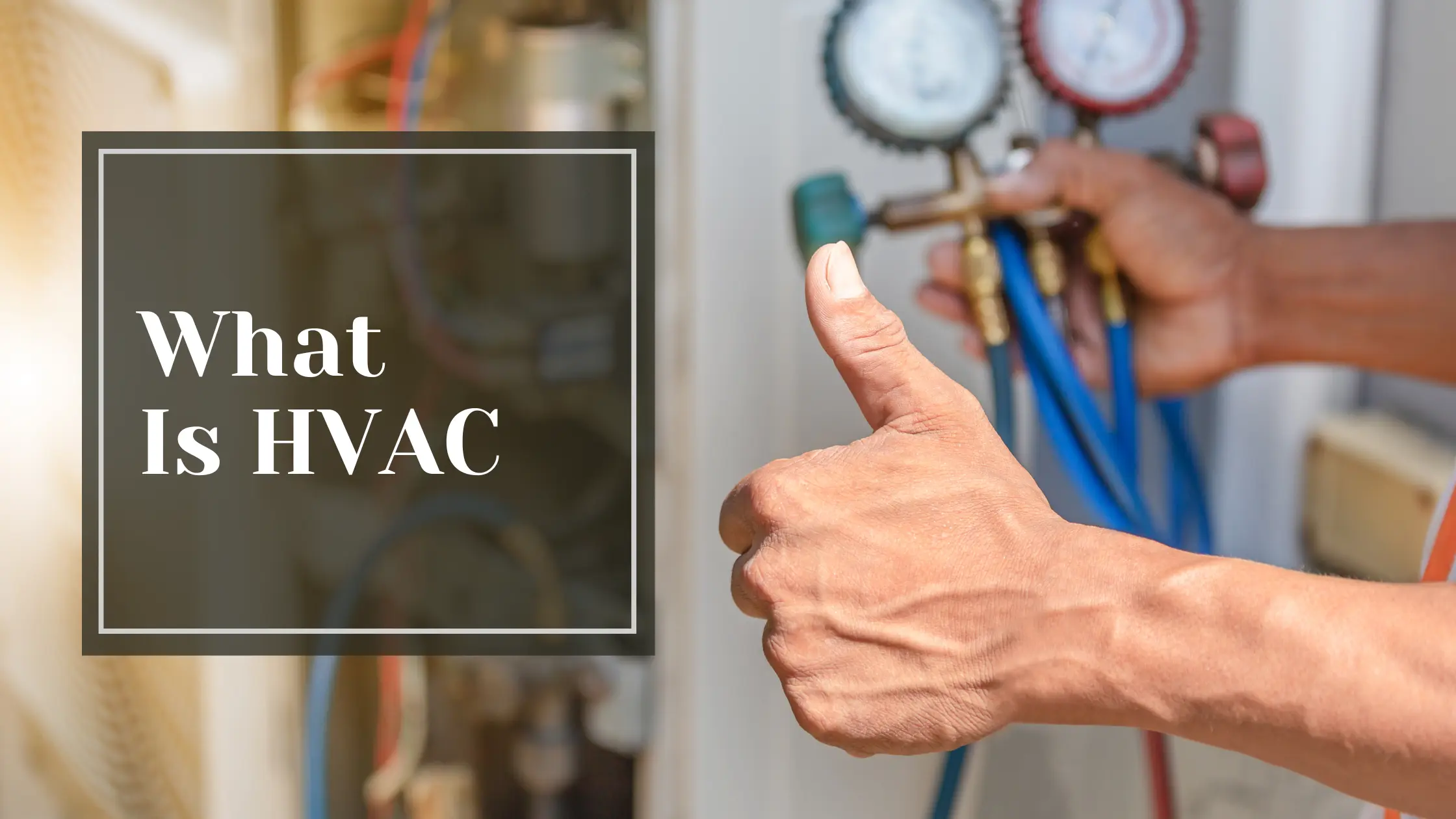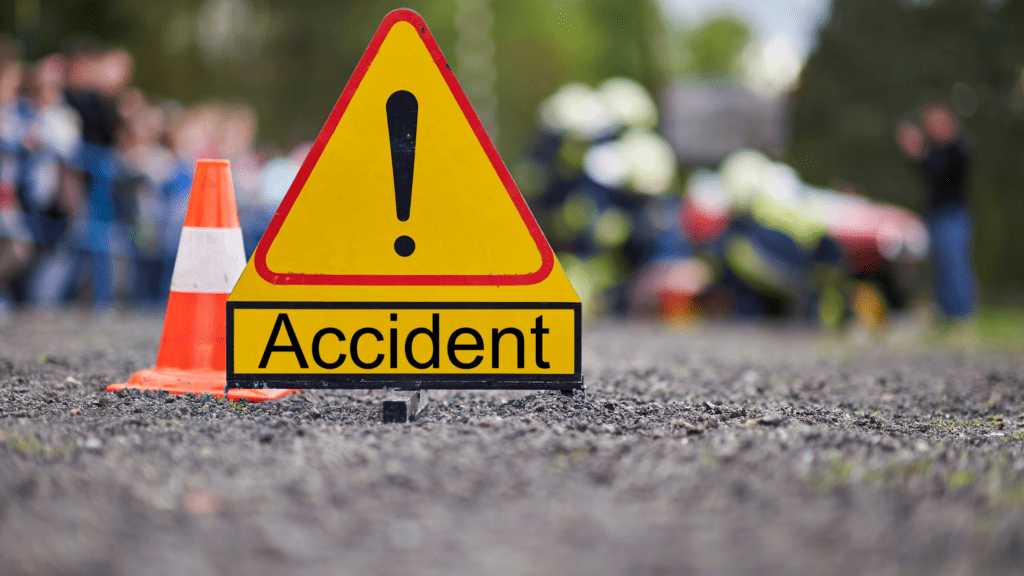
Accidents can happen in an instant, even to the most experienced drivers. As a professional truck driver, you have additional responsibilities in the event of an accident to ensure the safety of yourself and others, as well as to properly report the incident. Failure to follow proper procedures can have serious legal and financial consequences. This article outlines the steps you should take immediately following an accident, let’s see what they include.
Table of Contents
ToggleWhat to Do Immediately After a Trucking Accident
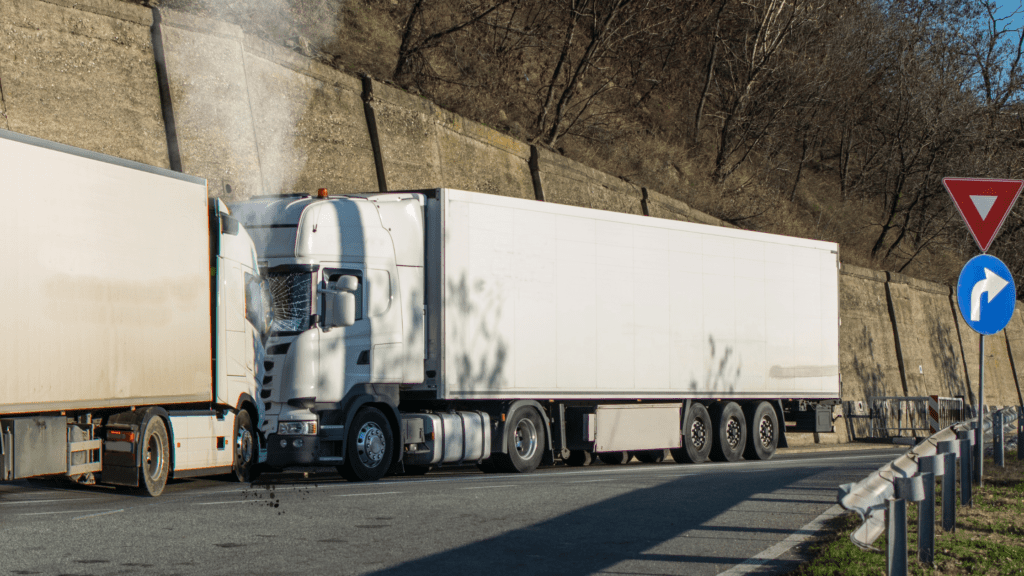
- First and foremost, check on any injured parties and call for emergency assistance if needed. Your top priority is to prevent further harm.
- Once emergency responders have been notified and the situation has been stabilized, you will need to notify the proper authorities like the police and your trucking company. Provide the location and details of the accident, the number of vehicles involved, any hazardous materials present, and the number of injuries.
- Be prepared to exchange information with the other driver(s) involved, including names, license numbers, insurance details, vehicle makes and models, and license plate numbers. Do not admit fault or sign anything accepting liability.
- Protect the area by setting up road flares or reflective triangles to divert traffic away from the scene. Remain at the location until instructed by the police to leave.
- In the aftermath, fill out an accident report with your trucking company as required. Be thorough, accurate, and timely with the details to comply with regulations and properly document the incident.
How to Handle Trucking Accidents Involving Injuries

If injuries are involved in a trucking accident, the top priority is to get medical help right away. As the truck driver, you should:
- Call 911 immediately. Provide the location of the accident and the number of vehicles and people involved, especially noting any injuries. Dispatch emergency responders as quickly as possible.
- Secure the accident scene. Activate your hazard lights, set up road flares or reflectors, and put out warning triangles to alert other drivers. Prevent further accidents or injuries.
- Do not move injured parties unless necessary for safety reasons. Moving someone improperly can worsen injuries. Only provide basic first aid until emergency responders arrive.
- Exchange information with the other driver(s) if possible. Get their name, address, phone number, license number, vehicle make and model, insurance details, and license plate number. Note the time and location of the accident.
- Notify your trucking company and insurance provider as required. Provide the details of the accident and follow any instructions given regarding drug/alcohol testing, vehicle towing/repair, or paperwork. Cooperate fully with law enforcement investigations.
What Information to Exchange With Other Drivers
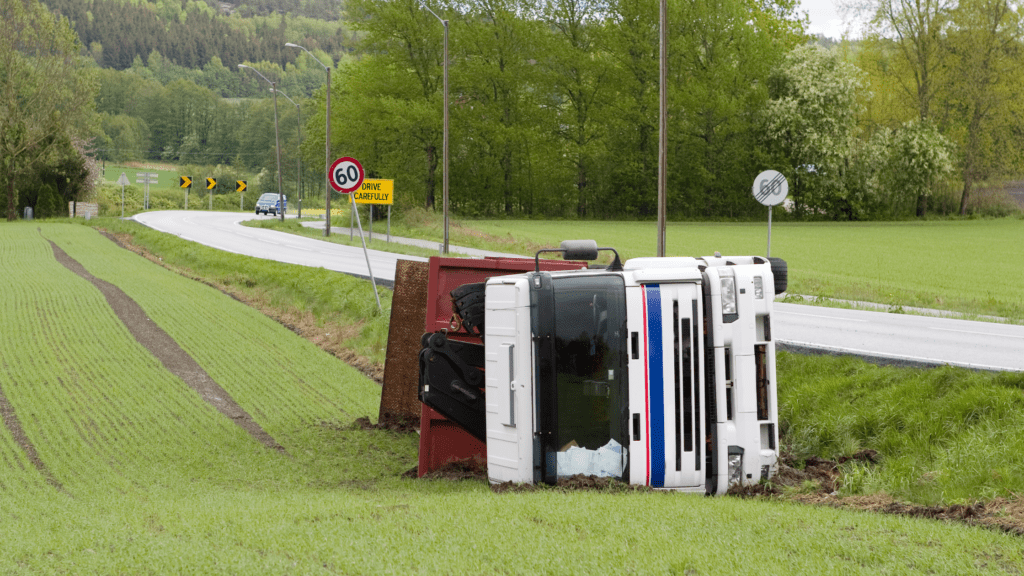
In the unfortunate event of an accident, you need to be prepared to exchange information with the other driver(s) involved.
You will need to exchange insurance details, including policy numbers, with all other drivers. Also exchange names, addresses, phone numbers, vehicle information (make, model, year, license plate number), and driver’s license numbers. – This information will be required by both insurance companies to properly handle claims.
Call the Authorities
- Notify the local law enforcement authorities like the police or highway patrol immediately about the accident. – They will fill out an official accident report for insurance purposes. – Provide the officers with the same information exchanged with the other driver(s).
Document the Scene
- If possible, take photos of the vehicles involved, the surrounding area, traffic signs or signals, and anything else relevant to how the accident occurred. – Get contact information from any witnesses to the accident as well. – Their accounts of the events can be critical for determining who is at fault.
Seek Medical Attention if Necessary
- Even if there are no obvious injuries, there may be internal issues that are not immediately apparent. – It is always best to get checked out by emergency responders following any vehicle accident. – Your health and safety, as well as that of any passengers, should be your top priority.
Contact Your Company
- Notify your trucking company about the accident as soon as possible. Provide them with all the details of the incident, including information exchanged with the other driver(s) and the police report number. – They will walk you through any next steps to take and assist you during the claims process.
Who to Contact After a Trucking Accident
Law Enforcement
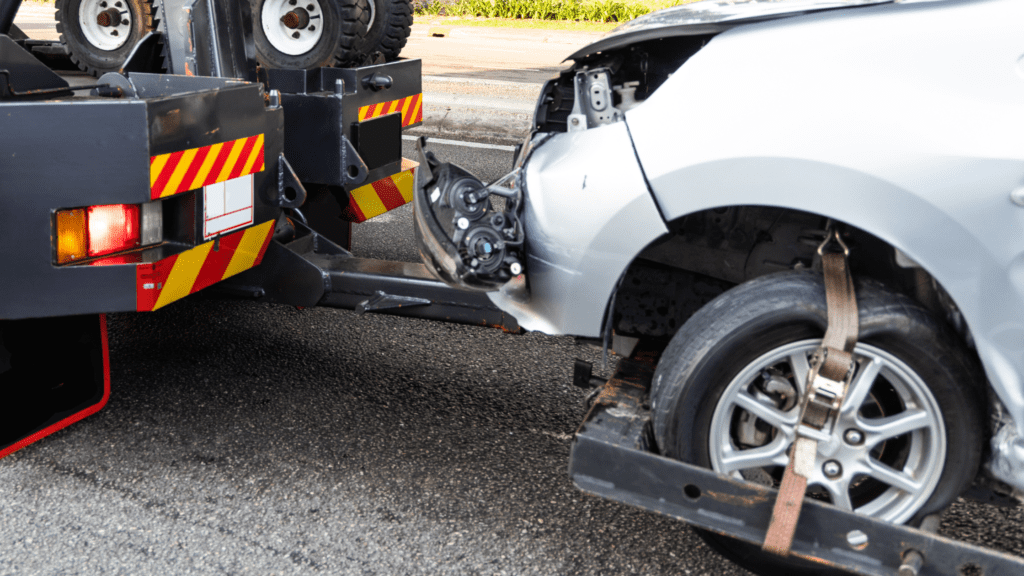
- Immediately contact local law enforcement to report the accident. Provide details about the location, the vehicles involved, and any injuries. Cooperate fully with the responding officers and follow all instructions.
Insurance Provider
- Notify your insurance provider as soon as possible about the accident. Give the details of what happened and the extent of any damage or injuries. Your insurance provider will walk you through the next steps to file a claim and may send an adjuster to evaluate the vehicles involved.
Company/Dispatcher
- If you were driving a commercial truck, contact your company’s dispatcher right away. Explain the situation, location, and current status. The dispatcher will determine if additional drivers or support are needed at the scene and will handle contacting the necessary people.
Medical Help
- For any injuries at the scene, call emergency responders for medical help immediately. Even minor injuries should be evaluated by a medical professional after an accident. Seek medical care promptly for both yourself and any other individuals involved.
How Trucking Companies Respond to Accidents
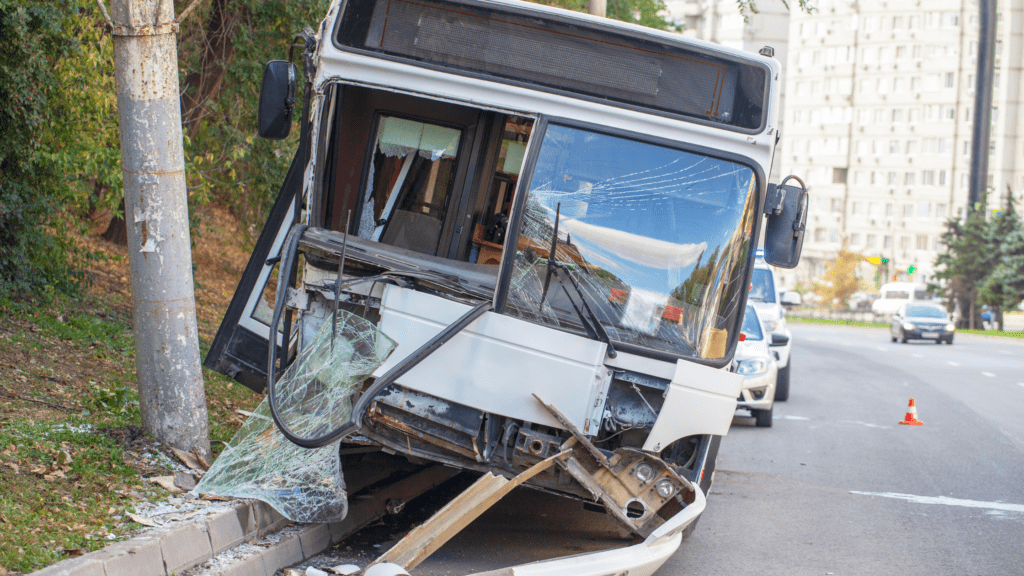
As a truck driver, it’s critical to know how trucking companies typically respond in the event of an accident. Their procedures are designed to ensure the safety of all parties involved, assess damages, and determine fault.
Securing the Trucking Accident Scene
- The priority is to secure the accident scene to prevent further injury or damage. The trucking company will dispatch emergency roadside assistance to provide traffic control, set up road flares or reflective triangles to divert traffic and call for medical help if anyone requires it. Police will also be contacted to properly handle directing traffic and documenting the incident.
Conducting an Investigation
- The trucking company will launch an internal investigation to figure out the cause of the accident. They will interview you, any witnesses, review dash cam or surveillance footage, check equipment, logs, maintenance records, and more. Their goal is to determine if the accident was preventable and if company policies were followed. Depending on the findings, retraining or disciplinary action may be taken.
Working with Insurance Companies
- Trucking companies have commercial insurance policies to cover accidents. They will report the claim to their insurance provider who will work with the other parties’ insurance companies to assess fault and liability. If the trucking company is found partially or fully at fault, its insurance will help cover costs for damages and injuries. The trucking company will also cooperate fully with any police investigations or legal proceedings.
Continuously Improving Trucking Safety
- Above all else, trucking companies aim to prevent accidents and improve safety. They will use the findings from accident investigations to strengthen training programs, update policies and procedures, improve equipment, or make other changes to decrease risks. Their top priority is keeping drivers, passengers, and all road users safe.
Conclusion
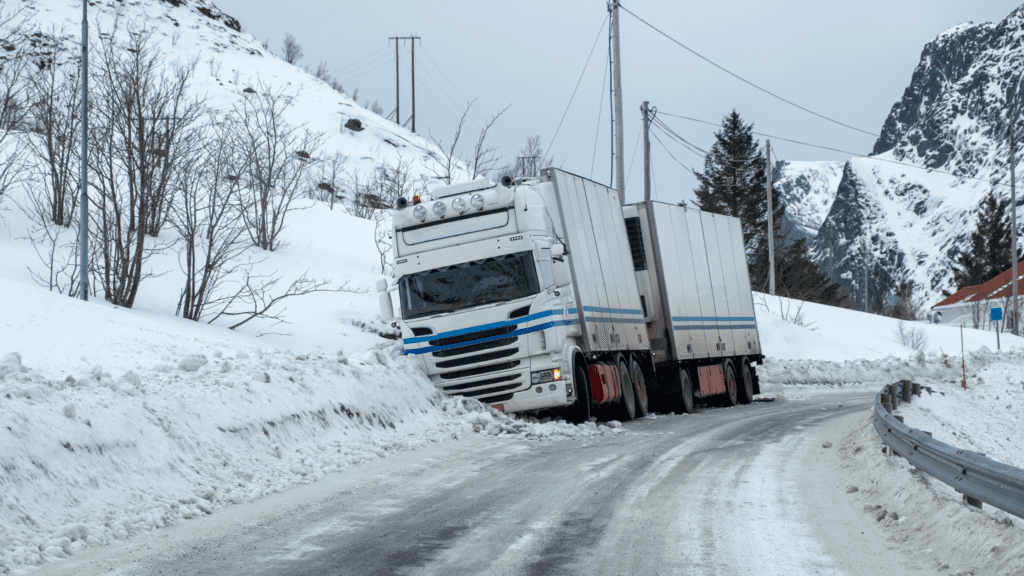
When facing an accident as a commercial truck driver, following the proper procedures is critical. Your safety, the safety of your cargo and any passengers, and compliance with regulations should be your top priorities. Your professionalism and responsibility in the aftermath of an accident will also reflect well on you and your company. By following these best practices, you will be prepared to handle accidents efficiently and properly as an experienced truck driver.
